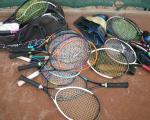This summer, the streets of Moscow were paved with granite tiles, which, as the authorities assured, would lie without repair for many years. But several months passed after the completion of the main work under the program “ My street“, as it became noticeable: somewhere the tile began to deform, somewhere it was destroyed under the influence of the environment. Instead of what was promised Sergei Sobyanin“a new level of comfort”, citizens received a street surface that was dangerous to life and health, wasted money and the prospect of permanent repairs. The reason for this is the use of stone unsuitable for the Moscow urban environment, the suppliers of which turned out to be connected with the curators of the program from the capital’s mayor’s office, mastered in recent years, more than 189 billion rubles have been allocated for the improvement of streets and parks. The main beneficiary of the street scam is the head of the city department of capital repairs Alexey Eliseev .
When Sergei Sobyanin first became mayor of Moscow, his love for concrete tiles was one of the main city topics of discussion - already in the first year of work in his new post, Sobyanin replaced more than a million square meters of asphalt with them, explaining this by the fact that tiles are much more durable. Within a few years, instead of concrete tiles, they began to lay granite- as even more durable and environmentally friendly. This greatly influenced the entire granite industry in the country: during Sobyanin’s tenure in his current position, according to Rosstat, production volumes of this rock in Russia increased almost 2.7 times (production volumes of concrete paving slabs grew less - slightly more than two times ).
Over the past seven years, almost 5.2 million square meters of paving slabs and 1.82 million square meters of granite sidewalks, as well as more than 1 thousand 400 kilometers of concrete curbs and 1 thousand 111 kilometers of granite curbs were laid on the streets of Moscow. Thus, concrete curbs alone would be enough to pave the road from Moscow to Kirov.
“The My Street program has literally revived the mining industry in the country,” said Alexey Eliseev, who is responsible for improvement at the mayor’s office. According to him, in the 20 years that have passed since the collapse of the USSR, many granite quarries have refocused on extracting crushed stone for road construction - and only with the beginning of “My Street” did they return to the production of granite slabs.
With all these achievements, however, Russian granite production simply cannot keep up with the pace of Moscow's improvement. Thus, in 2017, Moscow laid almost 1.2 million square meters of granite sidewalks and another 674 kilometers of granite curbs. At the same time, in 2016, a total of 885 thousand square meters of granite slabs were produced from all Russian stone. According to “” calculations, the cost of granite sidewalks and their installation is more than a quarter of the cost of the entire improvement: one square meter of such sidewalks costs the state 10 thousand 301 rubles (this is almost 10 times more than for a square meter of asphalt, and five - than per square meter of tile). Over the past two years, the Moscow City Hall has spent at least 24 billion rubles on the purchase and installation of granite sidewalks, of which more than 17.5 billion in 2017.
Sobyanin's gravestones
Difficulties with the supply of granite in Moscow led to the fact that several large streets at once this year began to be improved only in the fall - when in previous years work on “My Street” was completed. On several of them, tiles with unusual markings appeared in mid-August. For example, stickers on granite packages in Lubyansky Proezd stated that it was supplied for the Matyukhin Style company. She is engaged in the ritual business - making monuments and luxury tombstones.
As several companies in Siberia and the Volga region that make tombstones reported, they had problems because all the granite from the Ural deposits went to Moscow. “Because of Moscow orders, Ural granite workers are behaving rudely and have almost stopped taking orders for small quantities of 300–400 square meters,” explains an interlocutor in one of the Novosibirsk companies. In Central Russia such a problem does not yet arise. “Due to the late start of summer, this year the volume of orders for monuments decreased, and there were no problems with the supply of granite,” said Vitaly Gushchin, general director of the Grace-M ritual company near Moscow (monuments are usually erected in dry weather). At the same time, the entrepreneur added that capital ritualists rarely use Ural granite - only in 5% of orders.
One way or another, there was still not enough Ural granite for the improvement of Moscow - the stone had to be purchased from abroad. For example, in August, in the area near the park " Zaryadye“Containers with granite tiles produced by the Chinese company Xiamen Pagoda Build were discovered. According to the head of the overhaul department, Eliseev, 4.5 thousand square meters of granite were laid in the area around Zaryadye - however, Chinese television, filming reportage about the supply of borders for the park, claimed that 12 thousand square meters were sent to Moscow.
The main owner of Xiamen Pagoda Build is Ukrainian citizen Maxim Tryasunov, and his company also supplies granite and marble slabs with Ukrainian deposits. These deposits are often used by Sobyanin’s subordinates - despite the unofficial “trade war” with Ukraine. In 2016, almost 20 thousand square meters of granite from a deposit in the Zhytomyr region were laid on Bolshaya Yakimanka. That same summer, 25 thousand square meters of black granite slabs appeared on the Boulevard Ring, which, according to the labels, were produced at factories in the Zhytomyr villages of Galinovka and Toropishche. The overhaul department did not answer the question of how granite was supplied to Moscow from Ukraine.

Ukrainian granite on the Boulevard Ring, summer 2016
In 2017, boxes with granite slabs appeared on the Garden and Boulevard Rings, with the labels torn off, but the boxes themselves and the packaging design were the same as last year’s. Some of the slabs were lined with cardboard packages of Ukrainian products; By words director of one of the Ukrainian stone-cutting factories, his and other similar enterprises pack granite this way.
Granite from the Russian Orthodox Church
There are more than 170 granite deposits in Russia, but Moscow buys stone from only a few - 89% of granite for city streets is produced by three companies that own granite deposits. At the same time, even with Yuri Luzhkov The mayor's office acquired several granite deposits in Karelia and Khakassia. They belonged to the city Moscow Stone Processing Plant, which, however, received almost no orders from Sobyanin’s government - in 2016, the company supplied less than one and a half thousand square meters of granite tiles for the “My Street” program. Since March 2017, the plant has been owned by the Granel company. Its main business is development: Granel builds residential complexes in Moscow and the Moscow region (for example, Imperial Mytishchi); The company is owned by people from the Bashkir city of Sibay, a former State Duma deputy and co-chairman of the Business Russia association. Andrey Nazarov and his business partner Ilshat Nigmatullin, who own shopping centers and hotels in Magnitogorsk and several cities in Bashkiria. The change of owner did not affect the fate of the fields that previously belonged to Moscow; As far as one can judge, the plant is in a pre-bankruptcy state.
The largest producers of Moscow granite are also associated with Magnitogorsk. Almost half of the granite is mined at the Mansurovskoye deposit in eastern Bashkiria. “Mansurovka is a “soft” granite, it is easier to mine and cut, you can quickly increase its production, which is why Moscow began to purchase its huge volumes there,” explains the director of a company that sells granite products. Mansurovsky granite was used in the improvement of the Garden and Boulevard Rings, Malaya Dmitrovka, Vozdvizhenka and other streets. According to project documentation, in 2016–2017, more than 771 thousand square meters of granite slabs and more than 100 kilometers of curbs were supplied to the capital from this deposit. At the same time, according to the reports of the deposit itself, in 2015–2016 much less granite tiles were produced here - 274.7 thousand square meters. “Quarries often underestimate production volumes in order to pay less taxes,” explains the general director of a large company that sells granite products. According to him, stone from other quarries, either illegal or those that cannot be used, for example, for political reasons, can also be sold under the existing trademark. The Mansurovsky deposit is owned by the family of Alexei Shabalin, an ex-deputy of the Magnitogorsk City Council, who owns several markets in the city and the Cascade shopping center, where the first casino in the city, the Blue Cockroach, was located.
The second largest supplier of granite paving slabs is the Vozrozhdenie group of companies, owned by a St. Petersburg businessman Igor Bukato and his daughters Evgenia. The company owns several granite quarries in the Leningrad region and Karelia, and it is engaged not only in the production of stone, but also directly in the improvement of streets. Thus, it was “Vozrozhdenie” that remodeled Pyatnitskaya Street and Krasnopresnenskaya Embankment, receiving a total of more than one and a half billion rubles for two contracts. However, the company still receives its main orders at home: “Vozrozhdenie” is in fact the only company that improves streets in the center of St. Petersburg as part of a program for which “ Gazprom» annually allocates about 800 million rubles.
The third large producer of granite for Moscow is the Ural group of companies Granit-Industry, which owns three deposits in the Chelyabinsk region. It belongs to a native of Azerbaijan, Rakhman Makhmudov, who also owns several marble deposits, a hotel and a cafe in Verkhny Ufaley, a town in the Chelyabinsk region with a population of 27 thousand people.
Granite for Moscow is also produced at smaller deposits. For example, about 123 thousand square meters of tiles came from the Isetskoye deposit in the Sverdlovsk region, which until recently was co-owned by the Yekaterinburg diocese of the Russian Orthodox Church.

Sadovaya-Karetnaya street and surrounding area after improvement, September 13, 2017
People from Upper Ufaley
In the first years of the My Street program, construction companies that won tenders for landscaping purchased granite on their own. However, even then, almost all the stone was supplied by two companies: the same “Vozrozhdenie” (from the northern deposits) and “Granit-Invest” (from the Ural deposits). Granit-Invest belongs to Yekaterinburg resident Alexey Stepanchenko and Andrey Khudyakov, a native of the same Upper Ufaley, where the Azerbaijani owner of Granit-Industry has assets. Previously, Khudyakov and Stepanchenko were engaged in the supply of stationery. In addition to the Ural deposits, Granit-Invest Group of Companies supplies granite from deposits in Kazakhstan and Ukraine. In particular, in the summer of 2017, the United Energy Company, owned by the Moscow government, purchased cladding slabs from a deposit located in the Kirovograd region of Ukraine through Granit-Invest.
In 2015, Sergei Sobyanin decided to try a scheme with consolidated purchases of granite curbs - this was motivated by the fact that it would be cheaper, more reliable and of better quality. The city enterprise “Highways” was involved in these purchases. Then a record purchase of 343 kilometers of granite curbs was announced, which had to be delivered within 25 days after the conclusion of the contract. The winner was the little-known company K-Holding, which received contracts worth 1.07 billion rubles. According to the agency's archives " Ruspres", owner of the holding Igor Zimin is related to a group of interconnected companies that receive almost a third of contracts for road repairs in Moscow. One of these companies is Rador-M, which won the majority of Highways tenders this year; Rador-M and related companies (Road Group, SK Mira, Road Materials and Technologies, Magistral Project) have received contracts worth almost 17 billion rubles over the past three years within the framework of My Street .
Among the owners of companies associated with Rador-M were the former head of the overhaul department of Highways, Anton Oleshchuk, and the then deputy general director of this institution, Alexey Eliseev (in 2015, he transferred his shares in the companies to his brother Andrey Eliseev). As already mentioned, in 2017, Alexey Eliseev headed the Moscow Department of Capital Repairs, which oversees the implementation of the “My Street” program.
Apparently, Sobyanin’s experiment with consolidated procurement was considered successful - and since 2016, the city has been purchasing large quantities of granite this way. Highways held 18 tenders for this purpose. In twelve of them, the same Rador-M won (in five cases the company was the only participant), in two more - SK Mira, whose contact information indicated the same phone number as Rador-M. . These two companies received contracts worth 9 billion rubles (the total amount of all tenders is just over 12 billion). Two more contracts for the supply of granite - worth almost 1.7 billion rubles - were won by the Viatex company, the sole owner of which is Natalya Stuparik, who works as the director of the Boho restaurant in Naberezhnye Chelny. The remaining two contracts (almost 1.4 billion rubles) were concluded by the company TD Spetsplast, which supplies road marking materials to Avtomobilnye Dorog. All winning companies have current accounts in a small Corporate Finance Bank (ranked 262nd in terms of assets among Russian banks) and received guarantees for participation in tenders there.

Labels for granite packages on the streets of Moscow
Consolidated purchases have led to the creation of new intermediaries in the supply chain of granite tiles from deposits to sidewalks. According to the invoices for already completed contracts (the invoices are at the disposal of Meduza), the winners of the tenders are indicated as sellers, and the shippers are the same Vozrozhdenie and Granit-Invest. Contrary to the intentions of officials, the transition to a new procurement system almost doubled the price of tiles for the city - if in 2016 it was 3,803 rubles per square meter, then in 2017 - 7,591 rubles.
Transactions with building materials for landscaping also attracted the attention of law enforcement agencies. In June 2017, the Federal Antimonopoly Service, during an inspection of the My Street program, discovered violations worth 4 billion rubles, which, in particular, related to the purchase of paving slabs and curbs. At the same time, it was reported that a criminal case had been initiated under the article “fraud” against the leaders of Highways. According to the telegram channel Mash (connected with the publication Life Arama Gabrelyanova), the investigation is looking into the theft of about 200 million rubles under a contract for the purchase of curbs.
The Gothic Mystery
Although the Moscow authorities have recognized granite tiles as more suitable for landscaping, there are also plenty of concrete tiles on the city streets - over the past seven years, more than 5.2 million square meters of them have been laid. One of its largest suppliers, judging by the packaging labeling, is the Bekam company - next to its name on the label is the logo and website address of the Gothika factory. The website says that the company is part of the large construction company Krost, which owns a plant for the production of paving slabs in the Solnechnogorsk district of the Moscow region. Owner of Krost Alexey Dobashin during the elections of the President of Russia and the Mayor of Moscow he spoke confidant Vladimir Putin and Sergei Sobyanin.
The Bekam company, according to the Unified State Register of Legal Entities, is owned by Sergey Kovalev and Natalya Raznikova (they have no other businesses). The company's revenue in 2016 amounted to 1 billion 672 million rubles, net profit - 18.9 million rubles. Bekam practically does not participate in government procurement: in 2016, the company took part in a single tender - the supply of paving slabs worth 398 thousand rubles for the management of presidential affairs. Bekam is headed by a US citizen Alex Geller .

Concrete tiles with markings from the Gothika factory and the Bekam company
Geller's full namesake was involved in construction in the 2000s. In particular, his company AMG Group advised foreign manufacturers of refrigerators and cosmetics who were building factories in the Naro-Fominsk district of the Moscow region. According to materials from arbitration courts, Geller’s company in the early 2010s also took part in the reconstruction of the Dorogomilovsky market and the market near the Bagrationovskaya metro station, which the businessman controlled Shabtai Kalmanovich, killed in 2009. In 2010, Alex Geller announced the creation of a laboratory for preclinical drug research in Dubna, Moscow Region - its cost was supposed to be 1.6 billion rubles, and Rusnano and Uralsib were going to invest in the project (both companies also provided AMG Group with a loan in the amount of $38 .6 million). Construction of the laboratory did not begin, and in 2015, Geller and his partners began to be suspected of industrial espionage - this was reported by the Inform-Dubna publication.
Rusnano said that the state corporation withdrew from the project in 2012. “Geller almost did not hide the fact that he was interested in access to technologies and developments, and not the business itself,” says an interlocutor at Rusnano. - [There were indeed questions about this project] from law enforcement agencies. He greatly undermined Melamed’s position.” According to the agency " Ruspres", ex-head of Rusnano, Leonid Melamed is accused of embezzlement of 220 million rubles.
Can't resist vandals
As it quickly became clear, granite was not the easiest stone to use in the city. At first it turned out that at sub-zero temperatures it becomes very slippery - and after the winter before last, Moscow switched to purchasing only heat-treated slabs, with which this problem does not arise (the already laid slabs also underwent additional heat treatment).
Other problems soon emerged: for example, it was difficult to remove paint and dirt from granite. Under Sobyanin, stone also began to be used for lining underground passages - and Gormost specialists responsible for their maintenance have repeatedly complained that they are unable to completely remove paint from granite.
Every month, several dozen complaints appear on the Our City portal about vandal inscriptions on the granite lining of crossings. The answers to them always look the same: “Chemical cleaning agents do not completely remove patterns.” At the same time, the responses to citizens mention porcelain stoneware, although according to documents the walls of the passages are lined with granite from Vozrozhdenie. “The problem is not the granite, but the new paints that teenagers are using. Even with special means it is difficult to remove them not only from granite, but also from plastic and metal,” says a representative of the mayor’s office.
However, the officials' problems do not end with paint. “Mansurovsky granite contains a lot of iron,” explains the director of a company that sells granite. - It is rarely used as a pavement, because with frequent contact with water and chemicals it oxidizes and rusty stains and stains begin to appear on the light-colored stone. You can already see them on granite laid several years ago.”
As the agency previously reported, Ruspres", Sergei Sobyanin began lining underground passages with marble while still working in Tyumen, where the Aerodromstroy company, controlled by his wife Irina Sobyanina, spent 1 billion rubles on facing work instead of the planned 280 million rubles. Nominal owner of Aerodromstroy Sergey Solodovnikov followed Sobyanin to Moscow, where he was caught in large-scale theft during the reconstruction and construction of take-off zones at Domodedovo airport.
They probably said, “Fathers, where did all this money come from?”
But RBC answers where in its investigation “Who makes money from repairing Moscow roads.”
Responsible for carrying out the bulk of the work on repairing sidewalks and replacing curb stones is the state budgetary institution (GBU) “Highways,” which is supervised by Biryukov. The State Budgetary Institution was created in 2011 on the basis of several Moscow structures involved in the maintenance and repair of roads. Every year, the State Budgetary Institution purchases goods and services worth approximately 14 billion rubles, most of which goes to two dozen little-known companies.
...
At the beginning of 2015, Alexey Eliseev took the post of deputy head of Highways. Two RBC sources in Moscow road construction companies confirmed to RBC that Alexey Eliseev from Road Group and the State Budgetary Institution are one and the same person. Having switched to the civil service, Eliseev became a participant in the competition commission at tenders in which companies familiar to him took part. In particular, he was a member of the competition committee of the tender for the repair of sidewalks, in which Road Group won, offering to carry out the work for 925.6 million rubles.
...
During the reign of Sergei Sobyanin, the market for road work contractors in Moscow has changed almost completely. “Under Luzhkov, about 100 road companies worked in Moscow, now there are no more than ten left. The same companies win the auctions, and therefore smaller players have simply been washed out of the market,” says an RBC source in one of the capital’s road companies. Two managers of road companies interviewed by RBC, who were previously involved in work in Moscow, claim that recently the Road Group and companies close to it have been winning the largest tenders for street improvement, road marking and curb laying. “We have been working in the market for 20 years, we make a big reduction, and then they find fault with us and say that we filled out the documents incorrectly. We were simply ousted,” the head of one of the companies that recently took part in one of the tenders of the State Budgetary Institution “Highways” is indignant.
http://daily.rbc.ru/investigat...
Well, we wonder where Rakova got her jewelry set for 8 million rubles. We should be surprised that it is not worth 18 million, given such and such schemes.
It must be admitted that the Moscow mayor's office behaves extremely rationally - they are almost the only region where there is a lot of money left, and while there is war, sanctions, Russia is surrounded by enemies and other delights that allow officials to steal as much as they want - they are using this chance to the fullest. They have already gone to re-lay the “Sobyanin tiles” a second time.
Well, the funniest thing is RBC article. Hello to all Muscovites who swear with all their words, looking at the torn up roads and this nonsense with replacing curbs:
The Housing and Public Utilities Department was unable to provide comment for the note for several days. A source in the mayor's office said that replacing curbs is “the fulfillment of the will of Muscovites.”
"Tile fever" Sobyanin
FAS discovered violations amounting to 4 billion rubles in the purchase of paving slabs by Moscow officials. The companies that won the tenders are associated with City Hall officials.
Moscow antimonopoly officials uncovered huge violations that were committed under Sobyanin’s “My Street” program. This was discovered thanks to a request from communist Valery Rashkin; other deputies apparently did not want to pay attention to this.
Reveal - they revealed, but, as it turned out, not only deputies are afraid of the Moscow City Hall, but also the FAS. The head of the service, Igor Artemyevna, did not issue an order to Sergei Sobyanin to eliminate violations worth 4 billion rubles!
Do you know how the service explained this? Allegedly, they did not issue a “mandatory order to eliminate violations of the law on the contract system” because “the restoration of rights and legitimate interests is not possible”!
It’s like the old joke: “What is the philosophy of a Russian thief? He stole, drank, went to prison. And what about a Russian official? The same thing, but without prison.”
To be precise, the violations amounted to 4 billion 98 million rubles. It seemed that the “right companies” were winning. For example, company officials assessed them according to “subjective criteria.” Whoever the officials wanted to see as the contractor was, roughly speaking, appointed, even if the competitor’s price was lower and he offered to do more work. All five “competitions” were won by Rador-M LLC.
Rador-M LLC is associated with Alex Eliseev, who took the post of deputy head of Highways in 2015. The company reports to the Department of Housing, Communal Services and Improvement of the City of Moscow. Moreover, Eliseev became a participant in the competition commission at tenders in which companies familiar to him took part. Already in 2015, the company began to win tenders.
At the end of 2016, by personal order, Mayor Sergei Sobyanin appointed Eliseev as the head of the Department of Capital Repairs of the city of Moscow! “Alexey Andreevich Eliseev is appointed head of the capital repair department,” Sobyanin said.


Now everything falls into place. Why can't or won't the FAS involve law enforcement agencies in the situation or even give an order? It turns out that the winning companies are connected with city hall officials. And it seems that violations amounting to 4 billion rubles are not an accident...
Sobyanin system
Let us note that this is not the first time that people close to the capital’s mayor’s office have won tenders. For example, the ex-wife of Sergei Semenovich, respected lady Irina Sobyanina (Rubinchik) was directly related to the project ex-husband for laying paving slabs in the capital.
In 2011, about a billion rubles were spent on tiles - most of it went as profit to Mrs. Rubinchik. In 2012, orders were placed to re-tile the same streets. This is simply an inexhaustible source of income!

Sobyanin with the “tile queen” Irina Rubinchik
Let us note that everyone laid low-quality tiles, which were covered with ice in winter, which led to an increase in injuries among Muscovites. Ice in 2016 officially injured 200 people in the capital!!!
Evil tongues in the mayor's office say that billion-dollar tenders for Rubinchik are compensation for Sobyanin's departure to his subordinate, Deputy Mayor of Moscow Anastasia Rakova. “There are rumors that the top floor of the city hall building is equipped as a kind of kindergarten, where excellent conditions have been created for their (Rakova and Sobyanin) daughter. So, a happy family is together almost always."

Deputy Mayor Anastasia Rakova
“I, you, he, she, together are a friendly family!”
Well, okay, if we assume that the deputy mayor is a mistress, a wife, in turn, wins tenders. What about the daughters from her first marriage, were they really deprived? Of course not. Sergei Semenovich’s daughter Anna owns the Forus-Group LLC company and receives contracts for repairs and supply of luxury furniture to government agencies not through tenders, but mainly through subcontracting. “In particular, they talked about working on the interiors of the building of administrative bodies and the utility complex in Khanty-Mansiysk and the reception house.”
Forus Group, as anti-corruption fighters write, “receives orders without competition” through subcontracting.
By the way, Sobyanin worked from 1994 to 2001 as chairman of the Duma of the Khanty-Mansi Autonomous Okrug and he still has many friends there.
Another daughter, Olga, lives in an elite apartment with an area of 308.1 square meters next to the White House. Well, he lives and lives. The problem is that this elite apartment was given to Sobyanin exclusively for rent (federal law No. 84-FZ, which prohibits the privatization of official housing). But after Sobyanin was appointed mayor, the apartment incredibly became his property! Of course, law enforcement agencies again were not interested in the situation.
Mayoral or vile affairs of Sobyanin?
When all your close people are settled in, you can think about Moscow, right? In the capital, Sergei Semenovich placed people loyal to him. For example, Deputy Mayor for Culture Alexander Kibovsky, who at one time tried to push through the accreditation of the Russian Union of Copyright Holders (RSU) Nikita Mikhalkov, who, evil tongues say, may end up in prison in a case of theft of copyright fees.
Or Deputy Mayor of Moscow Maxim Liksutov, who was found to have offshore companies and companies doing business with the Moscow authorities.
It is necessary to mention Sobyanin’s first deputy Marat Khusnullin, who is called a lobbyist for Pavel Te’s construction business.
Deputy Mayor of Moscow Leonid Pechatnikov is generally suspected of having stolen 1 billion rubles intended for the employment of disabled people.
The list goes on. But isn't this enough? The situation developing under Sobyanin in Moscow is reminiscent not of the work of the administration of a large European city, but of an eastern satrapy, where people receive positions and incomes due to their proximity to the khan. If the Kremlin wants to fight corruption, it must first start with the capital. In the meantime, the “right” companies win tenders, and supervisory authorities are even afraid to point out multi-billion-dollar violations to the authorities...






















